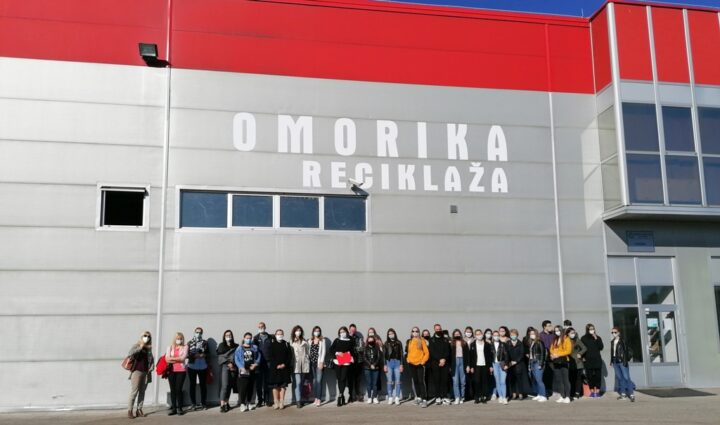The “Env-Net” project supported a successful visit to the first factory that started recycling PET in Bosnia and Herzegovina, “Omorika reciklaza” in the municipality of Doboj. Numerous activities are possible to take place in Bosnia and Herzegovina if measures are taken to prevent COVID-19 infection and the number of participants is up to 50. Bosnian partner from Env-Net, the project team “LIR-evolution” decided to continue with field visits with protective measures and take students and professors to this environmental best practice location. Recently, several more factories have started working on PET recycling. Nevertheless, “Omorika Recycling”, which uses highly automated process lines, their constant improvement and work on the establishment of a state-of-the-art quality control laboratory, constantly sets an excellent example to others. The factory, which currently has 51 employees, maintains production at a good level, despite the pandemic, taking careful hygienic measures, which were respected during this visit as well.
Habits for recycling PET and other polymers are still not sufficiently promoted in Bosnia and Herzegovina, despite many existing “recycling stations” (special waste separation containers located in schoolyards and large buildings). Many people are skeptical about recycling and are mistaken in thinking that even separate waste is dumped in city landfills. This is a harmful prejudice, given that “Omorika Recycling” is in high demand and currently imports some of the waste.
Since this plant exports 97% of its final products due to its excellent quality, visit participants will now be able to support them by promoting the facts about this example of PET recycling best practice. The focus group of visitors this time were professors of environmental protection and polymer technology from the University of Banja Luka with their students, mostly in the phase of finalizing the thesis or enrolled in master’s studies. The young participants, who will soon be professionals working in industry or government bodies, were able to see how PET waste is processed and will be able to educate their colleagues and families about the results of the plant. Since the factory is licensed to purchase the collected waste even from citizens and small groups, this is a great chance for students to promote PET collection and sale for recycling to achieve some social goals or support humanitarian or sports activities.
Links:
